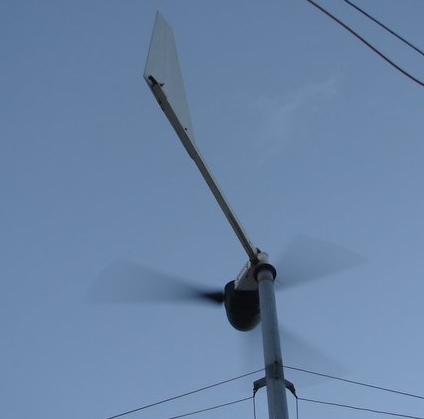| Author |
Message |
Razzle

Newbie

Joined: 27/06/2010
Location: AustraliaPosts: 16 |
| Posted: 06:09am 13 Jul 2010 |
 Copy link to clipboard Copy link to clipboard |
 Print this post |
|
Hi all.
Does anyone have any info on getting hold of EVA (Ethylene Vinyl Acetate) locally for cell encapsulation.
I am about to build some panels and no amount of googling or 1 hour in the yellow pages has got me anything but "what?" or a pallet of the stuff from China.
Surely.. (ooh that almost makes surlyn :-)) I can get this somewhere locally in Perth or even Australia in a small quantity cheaper than gold.
Thanks.
Darren. |
| |
KarlJ

Guru

Joined: 19/05/2008
Location: AustraliaPosts: 1178 |
| Posted: 11:47am 13 Jul 2010 |
 Copy link to clipboard Copy link to clipboard |
 Print this post |
|
mmmm good luck! 
Luck favours the well prepared |
| |
VK4AYQ
Guru

Joined: 02/12/2009
Location: AustraliaPosts: 2539 |
| Posted: 12:59pm 13 Jul 2010 |
 Copy link to clipboard Copy link to clipboard |
 Print this post |
|
Hi Razzel
Be careful with what you are supplied I had the experience that the resin supplied went brown in 12 months wipe out three panels, lucky I didn't do more with it. Took i back no warranty on it so also did my $130 + 3 panels at $200 cost price for materials.
Caveat Emptor
All the best
Bob
Foolin Around |
| |
Razzle

Newbie

Joined: 27/06/2010
Location: AustraliaPosts: 16 |
| Posted: 02:42pm 13 Jul 2010 |
 Copy link to clipboard Copy link to clipboard |
 Print this post |
|
Hi Bob.
Good to hear from you again.
I meant to ask - is your login an old call sign from the days of C.B. Radio?
So are you referring to liquid epoxy of sorts or EVA film?
If EVA what should i look out for to identify good from bad- that would be disastrous.
I want the proper material that is used, UV resist an all but no one seems to know what i am talking about.
Man there is always more - learnt today i need ion less glass 
Thanks.
Darren.
|
| |
VK4AYQ
Guru

Joined: 02/12/2009
Location: AustraliaPosts: 2539 |
| Posted: 09:47pm 13 Jul 2010 |
 Copy link to clipboard Copy link to clipboard |
 Print this post |
|
Hi Darren
The brew I got here in Brisbane was supposed to be the right stuff, came from a supplier in Sydney but was rubbish, $200 for five liters, it is a two pack liquid as thick as honey and looked great for several months but slowly turned brown, I took the rest back to the supplier so dont have the container to say what it is exactly.
My friend has used marine grade UV proof two pack epoxy in his and so far so good, it is quite flexible even after it has cured, it is made for wood applications where there is expansion contraction, it was sprayed on the backing to seal it then when dry the cells put in place with spots of silicone as mine where then the whole lot sprayed before fitting the glass, time will tell on that one.
I found it was better to put in nothing, don't know how long they will last though, On the glass I found that ordinary clear glass worked OK, power down about 3 percent, a piece 600 x 1200 is $50 buying 10 at a time and the proper glass was more than double that in ten piece lots. The channel for the frame is $15.20 a length that does 2 panels.
These a 12 volt nominal panels with 36 cells, I tried to do the 24 volt panels but it was to difficult due to size 1200 x 1200, the smaller panels where easier to handle and assemble as the silicone was going off before I could finish the larger panel.
The glass guy told me there is a laminating epoxy for laminating glass but I haven't followed up on that as I decided it was easier and cheaper to buy panels than to make them.
All the best
Bob
Foolin Around |
| |
Razzle

Newbie

Joined: 27/06/2010
Location: AustraliaPosts: 16 |
| Posted: 01:27am 14 Jul 2010 |
 Copy link to clipboard Copy link to clipboard |
 Print this post |
|
Hi Bob.
Yeah i'm not a big fan of resins. If the glass cracks ... say in a hail storm, there go your cells.
The EVA i am looking for is the proper stuff they use in manufacture.
It's the film that is heated onto the cells to laminate them. You can find it on ebay but they want a bomb for it. Some one local must have it.
I'm starting to go away from it at the mo. I want to stick the cells to a core flute backing and i figure if i seal them up properly with silicone against the glass then this will keep the moisture out which is what it's all about.
Right?
|
| |
GWatPE

Senior Member

Joined: 01/09/2006
Location: AustraliaPosts: 2127 |
| Posted: 02:09am 14 Jul 2010 |
 Copy link to clipboard Copy link to clipboard |
 Print this post |
|
Hi Razzle,
I still have EVA on a roll. I got mine through my contacts with SOLAREX a while ago. I may have to keep what I have left, if it is so hard to get now. I had the same problem sourcing carbon fibre when Boeing started making the 777.
I am sure someone can still supply EVA on a cut roll.
Home made panels are not really up to the lifetime test compared to the mass produced, controlled environment assembled commercial ones. If you get cells for NIX, then the effort may be justified, to save a few $$.
The air cured liquid EVA is really difficult to get right. I saw it tried on many solar cars, with poor results as well.
Gordon.
PS too much Silicone can lead to cells turning black over time. Something maybe with the RTV silicone curing.
become more energy aware |
| |
VK4AYQ
Guru

Joined: 02/12/2009
Location: AustraliaPosts: 2539 |
| Posted: 02:06am 15 Jul 2010 |
 Copy link to clipboard Copy link to clipboard |
 Print this post |
|
Hi Darren
My call sign is a QLD Ham call sign, not doing much at the moment as I am building a new electronics room in the shed, along with solar and wind projects, and rebuilding my ultralight, winter is short day time and to cold to do much before lunch.
Foolin Around |
| |
Razzle

Newbie

Joined: 27/06/2010
Location: AustraliaPosts: 16 |
| Posted: 02:40am 15 Jul 2010 |
 Copy link to clipboard Copy link to clipboard |
 Print this post |
|
Cool - I lived in Cairns for about 7-8 years. My old call sign was WCK818 for cb.
I got my rectifiers through yesterday so i will get together with a friend and see about some F&P wiring.
Gordon... I presume by this that you have some experience in EVA lamination.
Could i ask, i would like to laminate the cells between the EVA and possibly with a tedlar backing, but keep them seperate from the glass. How can i heat (with my heat gun) from the back of the cells without the EVA sticking to what it is laying on on the front or can't I?
Thanks.
Darren.Edited by Razzle 2010-07-16 |
| |
GWatPE

Senior Member

Joined: 01/09/2006
Location: AustraliaPosts: 2127 |
| Posted: 09:38am 16 Jul 2010 |
 Copy link to clipboard Copy link to clipboard |
 Print this post |
|
I saw how panels were made at the factory that was in Brisbane.
The EVA I have has a waxed paper separator on the roll, and is only 670mm wide.
I would not attempt to lay up cells with a heat gun, or without a vaccuum table. The cells go flat on the glass and the EVA moulds around the cells and onto the glass. The tedlar acts as the mechanical protection at the back and prevents the EVA from sticking to the vac bagging.
I would not make my own panels, as the panel costs these days is relatively cheap.
Gordon.
PS I have boxes of AA1 grade poly cells, and even some round mono cells. I will keep them for static art.
become more energy aware |
| |
Downwind

Guru

Joined: 09/09/2009
Location: AustraliaPosts: 2333 |
| Posted: 04:28am 17 Jul 2010 |
 Copy link to clipboard Copy link to clipboard |
 Print this post |
|
For vaccuum bagging of fiberglass i use an old compressor out of a fridge, it works well.
It is not fast at sucking a vaccuum down but find this good as it allows for some working time to stretch out wrinkles etc.
I have also used it to vaccuum form wet leather into shape for vintage bike seats etc.
Working with vaccuum forming is rather simple and easy to do with a basic setup, it is important to have a good vaccuum gauge to see if there is leaks and when maximum vaccuum is reached, in my case this is -100kpa (about -14psi)
Pete.
Sometimes it just works |
| |

